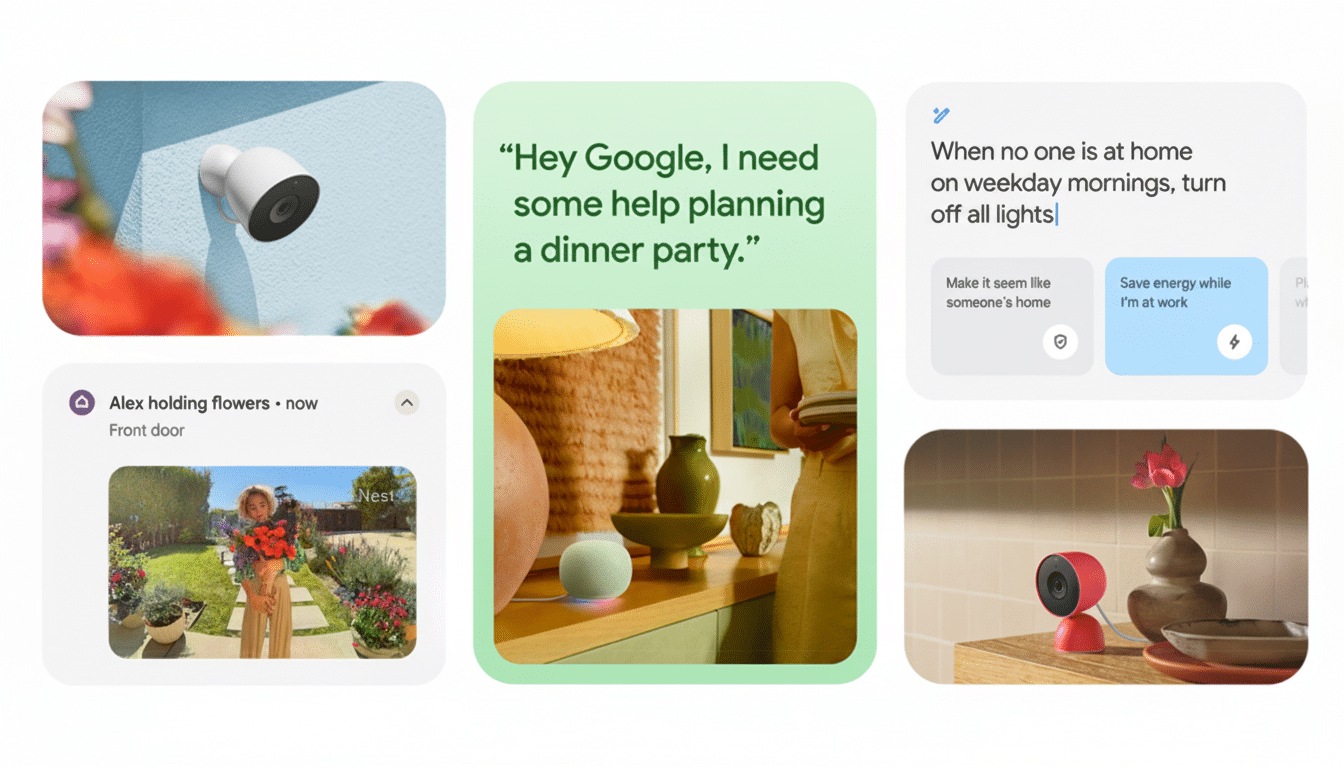Google’s new Gemini for Home launch appears to be tripped up by a bizarre bug: Nest speakers and displays are informing some users that basic dictionary definitions and translations require them to subscribe. The action resembles a paywall, but Google says it is an error and that it is going to be fixed.
What users are seeing on Nest speakers and displays
Reports emerged from Nest speaker owners who had upgraded to the Gemini experience and subsequently requested simple definitions — “define gaudy” or “what is a dinosaur,” for instance.

Instead of answering with a definition, the gadget responds with an ad-like prompt claiming that this feature is only available to paying customers, according to several users who received a reference to “Home Premium” or a mention of “live conversations.”
The issue appears inconsistent. Some households can request definitions outright while others get stuck behind the paywall-like response to a combination of dictionary, translation, and language-learning questions. This discrepancy indicates a routing or policy issue and not any intentional move to gate features.
Google’s smart speakers have given definitions and translations through the Assistant for free in the past, often by tapping into Oxford Languages for definitions and powering on-device readouts with the Assistant. (That core behavior shouldn’t be altered by the new Gemini for Home layer.)
Google confirms a bug, not a paywall, in Gemini for Home
Google has gained awareness of the issue and offered a brief update via its official Nest Community handle on Reddit, explaining that Gemini for Home is incorrectly showing that a subscription is needed to perform certain translation and definition requests.
The company says it’s aware of the problem and is working on a fix, and will provide an update when it is issued.
The distinction matters because Gemini’s ecosystem does include paid levels for premium features, like generative components combined with Google One AI Premium. But everyday utilities — definitions, quick translations, short Q&A — are not meant to be locked behind a paywall on Nest speakers and displays. The current responses are, in Google’s framing, an accident.

“In practice, it manifests as a miscategorization of intent: a simple dictionary lookup for a word definition loses on latency by going to a premium chat module,” they write. That can occur when natural language systems over-index on particular triggers, or policy checks are too broad during a rollout.
Why this matters for trust in voice assistants and AI
Trust and predictability are the coin of voice assistants. If one device suddenly begins charging for a familiar task, users ask themselves what else may be gated in the future. That risk is even higher during major platform transitions, such as replacing Google Assistant with Gemini on home devices.
The potential reach is significant. Consumer Intelligence Research Partners estimates have put Google’s US smart speaker installed base share at around one quarter for a long time, and Edison Research’s The Infinite Dial has tracked the percentage of Americans who own at least one smart speaker at roughly a third. And even a tiny percentage of those homes experiencing the bug represents millions upon millions of compromised interactions.
Definitions and translations are not mere trivia. They’re accessibility features for language learners, kids doing homework, or anyone who depends on fast, hands-free comprehension. Misdiagnosing them as premium slights the assistant’s usefulness as a dependable, workaday utility.
What you can do until Google releases a patch for the bug
While Google works on a fix, most users can work around the issue by accessing definitions and translations using the Google app or Search from a phone. Some have also found that it helps to reframe the request more literally — “Define [word]” or “Translate [phrase] to Spanish” — and that can nudge the system onto a successful path.
There is some basic troubleshooting that may help:
- Restart the Nest speaker or display.
- Make sure you’re on the latest firmware.
- Check language settings.
- If there are multiple devices in the home, try the same question on each to see if all have a problem; there have been widespread reports that not every device is affected equally.
The larger lesson is that premium AI capabilities and free utilities must have clear, uniform limits. As Gemini for Home continues its rollout, Google’s quick fix — and clear communication around what features are paid — is going to be crucial for maintaining trust in its smart home ecosystem.

